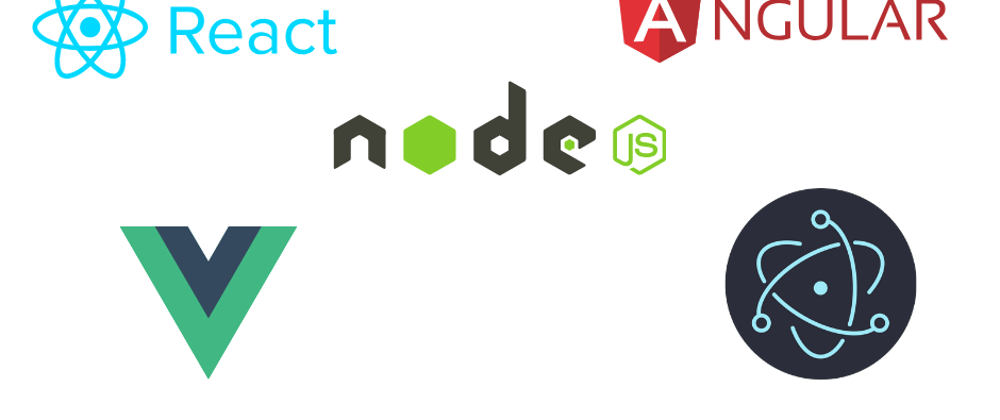10 Most Popular Javascript Frameworks in 2020
Javascript is considered to be the most dynamic language in the IT industry considering the current trends. Javascript has a solution to every problem. You name it and there's a 'framework' for everything you can think of. But, keeping in mind the fact that Javascript is majorly used in front-end development, web designing, and game development and graphics creation, we have curated a list of most popular Javascript frameworks which will be in an all-time-high demand in this year.
What is a Framework?
A framework is a supporting structure that is used to build software applications. It is just like a foundation that provides the platform for developing software. As a programmer, it is very essential to have an initial working knowledge of the frameworks. Every programming language has multiple frameworks that have made it very easy to develop applications. Javascript is a framework-rich language that has an extensive number of frameworks for a wide array of development avenues.
Let us now explore the top 10 javascript framework which will be most popular this year!
React
React is by far the most popular Javascript framework, created by Facebook used to create dynamic UI. React is a declarative and component-based framework using which you can build seamless UIs. React is a javascript library used to build user interfaces. The main features of React include virtual DOM, JSX, unidirectional data flow, and components. It is very easy to learn React because of its agile nature
Angular
Angular is a javascript-based framework that is, in many ways, similar to React. It is an open-source, robust, and efficient framework. IT giant Google manages Angular which is employed for the development of Single Page Applications(SPA). Cross-platform development, speed and performance, and incredible tooling are the main features that make Angular trusted by millions of users for development.
Vue.JS
Vue.js is an open-source view-mode Javascript framework. Vue has an adaptable architecture that emphasizes the composition of components and declarative rendering. Vue is mainly used for building UIs and single-page websites. Vue has the same functionality as that of React and Angular. All three frameworks ride the same boats with some functional differences. The main features of Vue.js are components, templates, reactivity, transitions, and routing.
Node.JS
Node is one of the most popular Javascript frameworks used for back-end development. Node is a server-side platform that is open-source and can be used for cross-platform development. It is a runtime environment that helps us to develop server-side web-apps and networking applications. Node is a library-rich framework which can significantly reduce the development complexity of web-apps.
Electron.JS
Electron is a framework for creating native applications with web technologies like JavaScript, HTML, and CSS. Electron helps us to create cross-platform desktop apps using HTML, CSS, and Javascript. The hard part that Electron.js makes easy include automatic updates, Native menus & notifications, crash-reporting, debugging, profiling.
Backbone.JS
It is a Javascript library with a RESTful JSON interface which is based on the Model View Presenter (MVC) app design. Backbone.js is light-weight and gives structure to web-app. Airbnb, Pinterest, and Hulu are some of the top users who employ Backcone.js for development. You can learn this framework easily by taking the best Backcone.js courses.
Ember
Ember is an open-source Javascript framework that is used to build scalable and efficient single-page web applications. It is majorly used for client-side development. The original name of Ember.js is Sprout Core MVC. It also supports data binding to link two properties of a web-app. Websites like tumblr.com, espn.com, soundcloud.com are some of the millions which make use of Ember.
Ionic
Design, animation, and performance can be the best adjectives to define Ionic. It caters us with vast UI components and gestures along with new custom animation APIs. It also has official React and Angular integrations. Ionic is a free and open-source Javascript based framework which offers a library of optimized UI components, gestures, and tools for developing efficient, highly interactive apps.
Meteor.JS
Meteor is an open-source Javascript-based platform which can be used for mobile, web as well as desktop development. It has a huge user-base of around half a million developers across the globe. The ease of shipping Javascript-based applications can be accredited to Meteor. It is written in node and rapid prototyping along with cross-development are some of the attributes responsible for the popularity of Meteor.
Polymer
Polymer is an open-source Javascript library for building web-apps with the help of web components. It is an efficient, user-centric, expressive, and extensible templating library for Javascript. Polymer supports both unidirectional and bi-direction data flow i.e, it enables us to implement both one-way data binding as well as two-way data binding.
Conclusion
With this we sum-up our list of 10 most popular Javascript frameworks which will be in an all-time-high demand this year. Javascript is indeed a dynamic language that has development constructs both for frontend as well as the backend of the web-apps. It also has frameworks that can be used for cross-platform development. They can also help us in building mobile, browser, and desktop applications. Thus, these Javascript frameworks have revolutionized the traditional web development processes and invaded new horizons for the community.
Thus, if you are willing to make a career in the software industry that too in the development team, then you must learn any of the above-mentioned Javascript frameworks to excel in your career.
Glad to see that you have made it this far! If you have reached till the end then certainly you are willing to learn more. Coursesity thrive to enlighten people with knowledge and make them acquainted with the latest technological trends.
Here are some more topics that we think will be interesting for you!
Also, I would love to hear any feedback and review from you. Please tell me what you liked in the comment section below. Happy Learning!✨

















Top comments (22)
I was surprised not to see Svelte, even though I've not tried it myself yet but the rest of the list was what I expected to see.
For once it's nice to not have 10 new frameworks released every month that seem to jump in popularity before being proven.
This is a good list for anyone that has been lucky enough to not have to deal with JavaScript lately :)
Hi Peter, I guess the first part of your question has been very well answered by me in the above reply to a spammer's comment.
And, coming to the second part of your point, it's apt! The sole purpose of this post was to give the audience, a brief description baout the 10 JS frameworks, which I think are doing good.
In India, Svelte is nowhere. So I have structured the post as per my market scenarios.
Hope this answers all your questions
Thank you :)
And thanks for the insightful comment. Please let me know in case there's anythinh else I can learn from!
SvelteJS
Backbone and Ember are old school. Far better options post 2014.
Where's svelte and express?
SvelteJS
I meant in this article
Node.js is not a framework, It's a runtime environment for executing Javascript code.
Electron has one major failing: It produces massive binaries (70MB to 150MB in size) and is a huge resource hog (300MB to 1GB RAM, 300MB disk storage, plus the bundled Chromium is a hefty CPU hog). Sure it works, but that doesn't make it the best option for building native apps.
CubicleSoft PHP App Server is the alternative I wrote, maintain, and prefer. PHP App Server uses the user's already installed and configured web browser and comes with premade installer scripts for producing installers for Windows, Mac, and Linux. The final binaries are as small as few hundred KB (compressed) and is ultra-light on resources (the server uses ~1MB RAM). And you get access to PHP too in addition to CSS, JS, and HTML.
Hey!
Thanks for the information on Electron JS. I'll definitely check the PHP App server you wrote!.
Thank you
Angular is the most accomplished framework out here! <3
Sorry but i do not agree with Ember, Backbone or Meteor, even Polymer is out of race
Hi Kayo,
Then can you suggest, which ones do you consider 'to be in the race'
I would be eager to know the trends.
Thank you
Maybe you could have read some statistics from here:
2019.stateofjs.com/
Thanks for the recommendation Christopher. I'll surely check it✌️
React is a library, not a framework.
Some comments may only be visible to logged-in visitors. Sign in to view all comments.